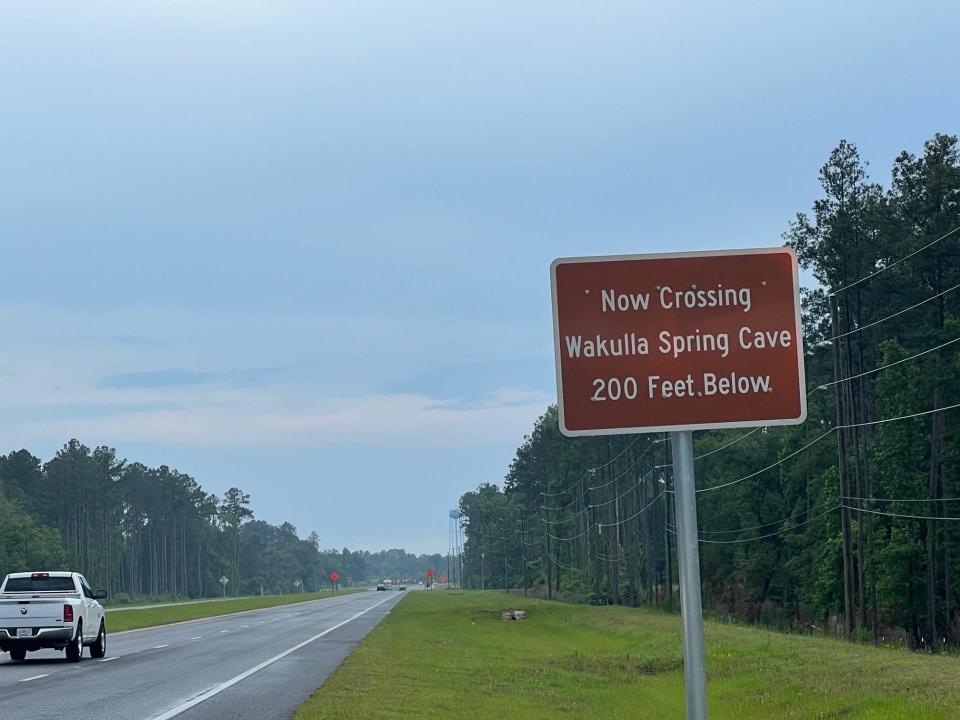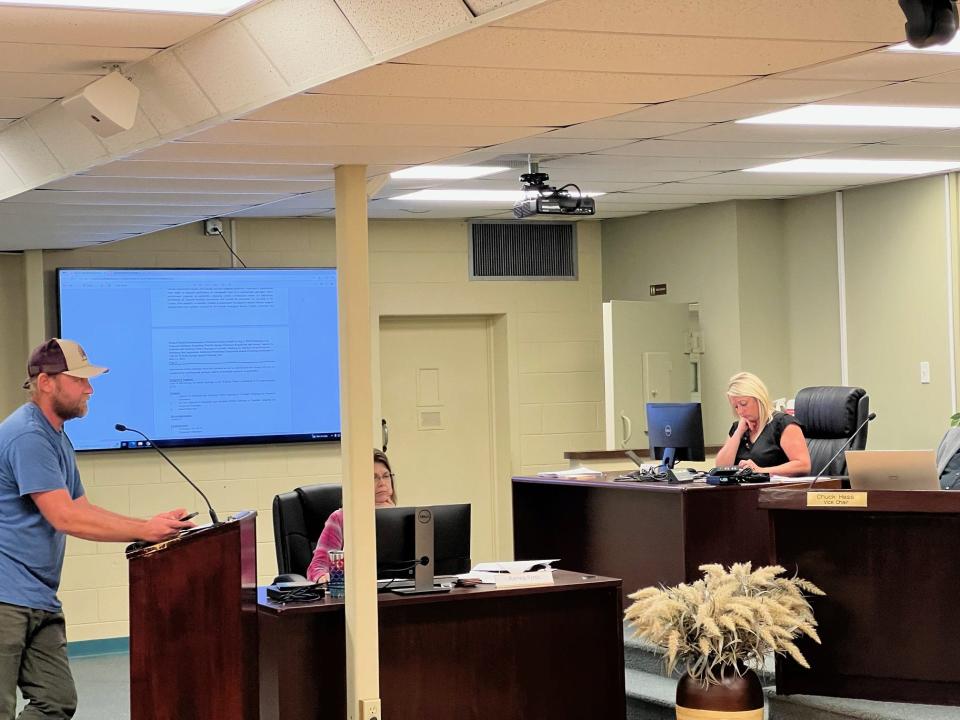A look at why Wakulla Springs water could be at risk for gas contamination
Wakulla County residents want stricter regulations of hazardous materials to protect groundwater, but county staff tell commissioners the Florida Department of Environmental Protection is not providing any guidance on how to meet citizens’ demands.
Residents and officials are trying to satisfy a desire to protect their drinking water and a unique Florida ecosystem without exposing the county to private property lawsuits by pre-empting federal and state regulations of petroleum.
Over the course of two public meetings in May, residents prompted officials to adopt an amendment to expand countywide a springs protection zone as part of a revision to a 29-year-old springs ordinance.
The zone is currently confined to the Wakulla Springs basin, the northern part of the county.
But commissioners balked when residents called for setbacks, geographic buffers, for storage tanks of hazardous materials, including petroleum products.
Wakulla sits atop a unique dissolvable bedrock where an underground cave in the northeast is a conduit for a subterranean river connecting the aquifer and Wakulla Springs, the world’s largest known freshwater spring.

Background: Underground river in Leon links cave network to Wakulla Springs, reveals pollution expressway
The limestone bedrock is riddled with sinkholes that open to below ground caverns and caves where surface and ground water are mixed into the aquifer and then reemerge as a torrent of 400 million gallons of freshwater daily at Wakulla Springs.
The spring is iconic Florida wilderness that has attracted humans and wildlife for at least 12,000 years – mastodon bones have been recovered from the spring bed, endangered species live along its banks, and the surrounding woods served as a real-life jungle set for science fiction thrillers, and disaster movies.
Efforts to stiffen regulations gained new urgency when the Southwest Georgia Oil Company announced plans a year ago to build a 16-pump gas station at Bloxham Cutoff, the intersection of U.S. 319 and State Road 267.
The site is right above an underground cavern known as Chip’s Hole Cave, which divers for the Woodville Karst Plains Project (WKPP) had explored, mapped and placed transponders for above ground mapping purposes.
Fears of gas station near Wakulla Springs on pause after company pulls rezoning request
A watery enigma: Wakulla Springs now producing more water than 20 years ago
The WKPP announced in January its divers had documented how the aquifer and Wakulla Springs connect.
In February, Southwest Georgia Oil Company pulled its permit request but has expressed interest in Wakulla’s efforts to revise the springs protection ordinance.
On May 1, commissioners approved proposed revisions to a 1994 ordinance that established the springs protection zone with more extensive regulations than currently required by DEP.
They then amended the proposal two weeks later before a packed commission meeting room to expand the protection zone county wide.
The new rules also outline when above ground storage tanks are required, along with new standards and maintenance requirements for the tanks.
“There's probably not another county in the state that has an ordinance that provides the level of protections that Wakulla is doing. That’s something that we should all agree on,” said Commission Chairman Ralph Thomas, after the board amended the proposal.
The proposed revisions had been approved on a 4 –1 vote, but the amended version received a unanimous vote.
“We should all agree that Wakulla Springs is worth protecting, and if five Wakulla County Commissioners are adopting an ordinance that's increasing that protection, seems to me like to me everyone should be praising that,” said Thomas.
They do. But oyster farmers, advocacy groups and residents also want buffer zones in vulnerable areas – where it is known there are underground conduits to the aquifer and Wakulla Springs.
The citizens group Clean Water Wakulla, along with the Wakulla Springs Alliance of scientists and educators, want commissioners to explicitly name petroleum as a hazardous product and regulate it as such.
Petroleum is currently exempt from federal and state regulations requiring above ground storage tanks for hazardous materials and waste.
The WSA’s Anthony Gaudio explained to commissioners how to do an end-around the exemption.
“The ordinance should be amended to apply to all regulated substances as defined in the ordinance. This would simplify the regulatory process and eliminate potential enforcement and legal challenges posed by the absence of definitions,” said Gaudio.
Commissioner Chuck Hess was the lone no vote when the revisions were initially approved because they did not prohibit underground storage tanks in vulnerable areas, like Chip’s Cave.
Hess said it doesn’t take much petroleum to contaminate water – about one part per billion, and the water remains contaminated for years.
Gasoline is a mixture of about 150 chemicals, many of them carcinogens.
A typical underground storage tank contains 30,000 gallons. When Hess pointed out if a sinkhole were to swallow one in Wakulla, the county’s drinking water could be contaminated for a generation or longer.
A consultant the County had hired asked if he knew of any cases where such a thing had ocurred.
Hess couldn't but later he discussed a 1994 gasoline spill on a lot across from where the Commission meets that required removal of 2,000 tons of soil, down to 25 feet.
The site is still contaminated and Hess said the pollutants have since migrated 1,500 feet east to the spring.
Hess and the advocates wanted to rely on WKPP’s transponders to establish a buffer zone for Chip’s Cave.
But staff explained that any map county officials relied on for regulations must be certified and accepted by the Florida Department of Environmental Protection.
Commissioners were told this was especially relevant because the parcel in question is on private property.
County Administrator Dave Edwards said staff has been unable to find any county in Florida with a buffer or setback requirement imposed on private property.
Hess asked staff if WKPP mapping is legally sufficient to require one.
“Have you contacted DEP and ask about this directly?” said Hess during the May 15 meeting.
“The department has been reaching out to DEP for months. … those efforts continue. We’ve not received anything. Not even an email for a year and a half,” said Heather Bryan, the county’s executive director.
Bryan told commissioners staff would continue to reach out to DEP.
DEP did not respond directly when asked May 17 about the Bryan Hess exchange.
"The Florida Department of Environmental Protection is currently reviewing Wakulla County’s proposed local ordinance changes and is scheduled to meet with them next week to discuss their proposal further," said external affairs spokesperson Ashley Livingston in a May 22 email exchange.
As of June 1, the meeting has yet to take place.

In the meantime, residents and advocacy groups want commissioners to pause the process and have the proposal vetted by third party experts.
Sopchoppy oyster farmer John Harley told commissioners he had recently heard about plans to revise the ordinance and thought they should “let up on the throttle,” to allow more people to join the discussion.
“We’re in the fog and need everyone looking … because some of this stuff is scary,” said Hurley. “Our drinking water is everything.”
The amended revisions were sent to the planning department for further vetting and to have a public hearing scheduled.
As part of preparation for that hearing, the Wakulla Springs Alliance, Clean Water Wakulla and The Friends of Wakulla Springs have scheduled a workshop for June 14, at the Wakulla Environmental Institute on Preservation Way in Crawfordville, to develop recommendations for a springs ordinance that will "ensure economic growth and environmental protection."
James Call is a member of the USA TODAY NETWORK-Florida Capital Bureau. He can be reached at jcall@tallahassee.com. Follow on him Twitter: @CallTallahasse
This article originally appeared on Tallahassee Democrat: Wakulla Springs water protection an issue in regards to petroleum

